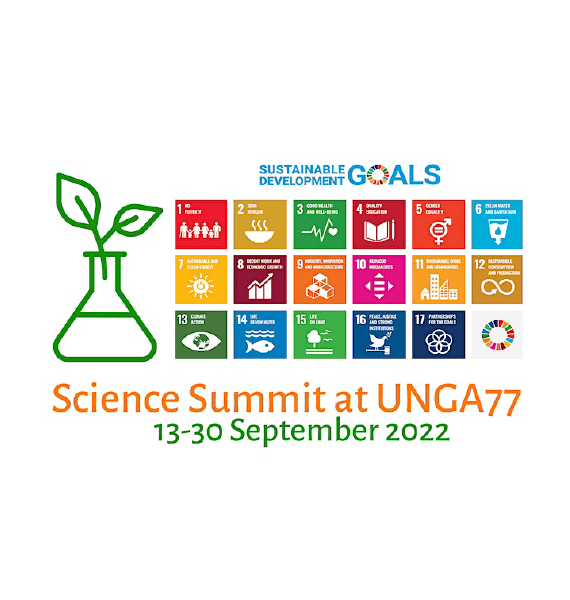Science Summit at UNGA77
Home | Events | Policymakers | Science Summit at UNGA77

Hybrid, New York/Online, 13–30 September 2022.
ISC is organising the 8th edition of the UNGA77 Science Summit around the 77th United Nations General Assembly (SSUNGA77) in September 2022. This is a hybrid event with some sessions being held in New York and others online.
LifeWatch ERIC will be convening a Biodiversity Plenary with GBIF on Friday 16 September from 15:00–23:30 CEST; see our news item for more details.
The role and contribution of science to attaining the United Nations Sustainable Development Goals (SDGs) will be the central theme of this conference. The objective is to develop and launch science collaboration to demonstrate global science mechanisms and activities to support the attainment of the UN SDGs, Agenda 2030 and Local203o.
A central theme of the UNGA77 Science Summit will be inclusiveness: a range of discussions will explore how scientific excellence can be pursued based on inclusiveness at the global level. Another theme will be exploring at the science system works: policies, regulation and funding for science stem from deep in the last century. The pandemic provides a chance to rethink and co-design a new system for science for a new set of urgent challenges. A redesign of the global science system is urgent.
A call for session proposals has been published here.
Science infrastructures and digital research capacity building are crucial to enable scientists to collaborate at an international level to create opportunities for wide-ranging initiatives that can produce innovations to respond to challenges in health, climate, environment, energy, agriculture and food, amongst other things.